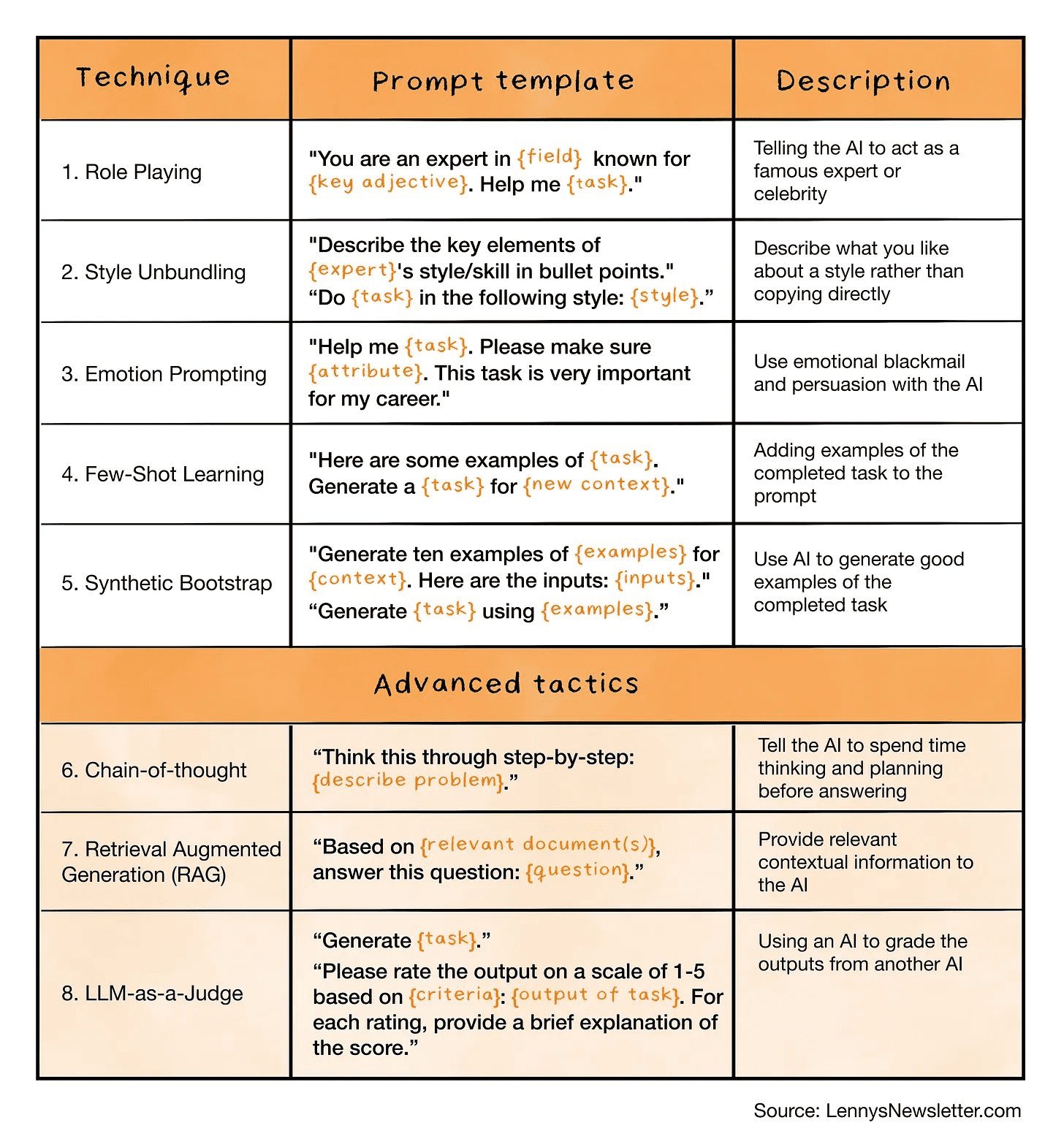AI Conversation Skills Quick Facts: Prompt Word Templates from Basic to Advanced
A systematic guide to AI prompt words with 8 practical tips, ranging from basic role-playing to advanced assessment methods, each with a standardized template and instructions for use, to help users get better AI conversations
Basic skills (first 5)
- role-playing (as a game of chess)
- Prompt template: "You are an expert in {field}, known for {key adjective}. Help me with {task}."
- Use: Let AI play the role of an expert in a specific field to answer questions
- stylistic deconstruction
- Prompt template: "Describe key elements of {expert} style/skills" or "Follow {style} to accomplish {task}"
- Purpose: To help understand and apply a particular style rather than simply mimic it
- Emotional Cues
- Prompt template: 'Help me complete {task}. Please make sure that {Attributes} This task is very important to my profession."
- Purpose: Improve the quality of AI's answers through emotional appeals
- learning with fewer samples
- Prompt template: "Here are some examples of {tasks}. Generate a {task} for {new context}."
- Purpose: To guide the AI through the task by providing concrete examples
- Synthetic sample generation
- Prompt template: "Generate ten {examples} for {context}. Here is the input: {input}"
- Purpose: Generate high-quality examples using AI
Advanced techniques (last 3)
- thought chain
- Prompt template: "Think step-by-step: {describe the problem}"
- Purpose: Allow AI to think and plan deeply before answering
- Retrieval Augmentation Generation (RAG)
- Prompt template: "Based on {relevant documentation}, answer this question: {question}"
- Purpose: Provide AI with relevant background information for more accurate answers
- AI as Judgement
- Prompt template: 'Generate {task}. Please rate the output on a scale of 1-5 according to {criteria}. Provide a brief explanation for each rating."
- Purpose: Use AI to assess the quality of other AI's outputs

© Copyright notes
Article copyright AI Sharing Circle All, please do not reproduce without permission.
Related posts

No comments...




